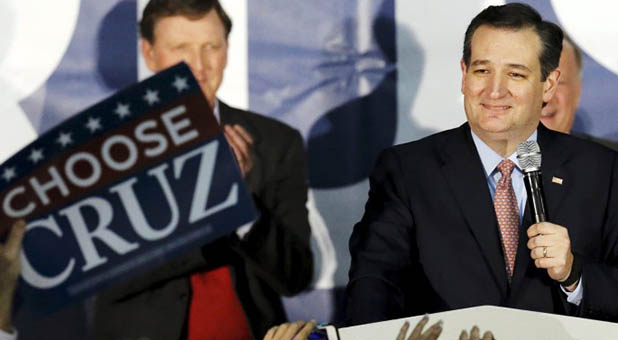After Ted Cruz’ Iowa Win, Is Big Corn Losing Its Influence?
U.S. Republican presidential candidate Ted Cruz’s victory on Monday in corn-rich Iowa could represent a major blow to the country’s controversial biofuels program, reflecting its waning influence over politicians even in the U.S. farm heartland.
Cruz, a conservative senator from Texas and outspoken opponent of the Renewable Fuel Standard, or RFS, upset billionaire businessman Donald Trump in the Iowa caucuses, the first of the state-by-state battles to pick party nominees for the Nov. 8 election.
Cruz won with 28 percent of the vote, compared with 24 percent for Trump, in a victory that included taking Kossuth County, the state’s biggest corn-producing county.
The result was a setback for corn farmers in the country’s biggest ethanol-producing state, who have lobbied hard to protect the policy from being dismantled after more than a decade.
The program requires the use of ethanol and other biofuels in the nation’s fuel supply and is aimed at reducing U.S. dependence on foreign oil, utilizing cleaner, domestic energy sources and boosting rural economies.
Cruz now supports a phase-out of requirements for renewable fuel, rather than the immediate repeal he was pushing for in 2013.
Still, the fact he won Iowa without the backing of the ethanol and corn lobby may raise doubts as to whether candidates still need to garner its support in the long term, potentially removing a big pillar of support for the lobby’s agenda.
“The conversation inside of Congress in the morning will change instantly, as Republicans realize they can be against the mandate and still win,” said Michael McKenna, a Republican strategist and energy lobbyist, speaking of a Cruz win.
For some voters, terrorism and healthcare are bigger issues than the state’s ethanol industry.
“I think the clear message coming out of Iowa is that whatever political influence ethanol used to have in the state, those days are now over,” said George David Banks, Executive Vice President of the American Council for Capital Formation.
RFS has come under heightened criticism from oil groups, which say the volumes set by Congress are unachievable. Environmentalists also question the benefits of corn-based ethanol, which represents the vast majority of an 18-billion-gallon biofuels industry.
Attempts to reform or repeal the program have been unsuccessful. A repeal amendment tacked onto a Senate energy bill being considered this week is expected to be rejected, if it even goes to a vote.
Politicized Issue
Ahead of Monday’s caucuses, some equity traders had played down the impact of the vote on U.S. ethanol producers, noting it is too early in the election process to be meaningful for individual stocks.
Shares in Green Plains Inc and Pacific Ethanol Inc were down over 4 percent in thin trading on Tuesday morning, underperforming the broader equity market. BB&T cut its price target on Green Plains on Tuesday.
Reinforcing the weak outlook for ethanol margins on Tuesday, Archer Daniels Midland reported weaker-than-expected earnings, blaming poor biofuels prices.
Shares were down almost 8 percent at $32.73, on track for its worst daily performance in 4-1/2 years.
Iowa, the top ethanol-producing state, remains the stronghold of support for the program. The industry accounts for more than $4.9 billion, or 3.5 percent, of the state’s gross domestic product.
Ethanol has already broken into the transportation fuel infrastructure, representing about 10 percent of blended gasoline, and some experts said the majority of Iowa voters still supported RFS.
Eric Branstad, Iowa director of the pro-RFS group, America’s Renewable Future, said on Monday night that although Cruz’s position would be devastating to the state’s economy, “We feel good about our results.”
“The vast majority of our candidates and the vast majority of caucus-goers realize the economic, national security, and environmental benefits of the RFS,” Branstad said in a statement.
“If the RFS doesn’t win in Iowa, where does it win?” said Bruce Babcock, an economics professor at Iowa State University. “It goes against what the Republican establishment has been pushing for years.”
(Additional reporting by Valerie Volcovici in Washington DC and Josephine Mason in New York; Editing by Peter Cooney and Frances Kerry)
© 2016 Thomson Reuters. All rights reserved.














































